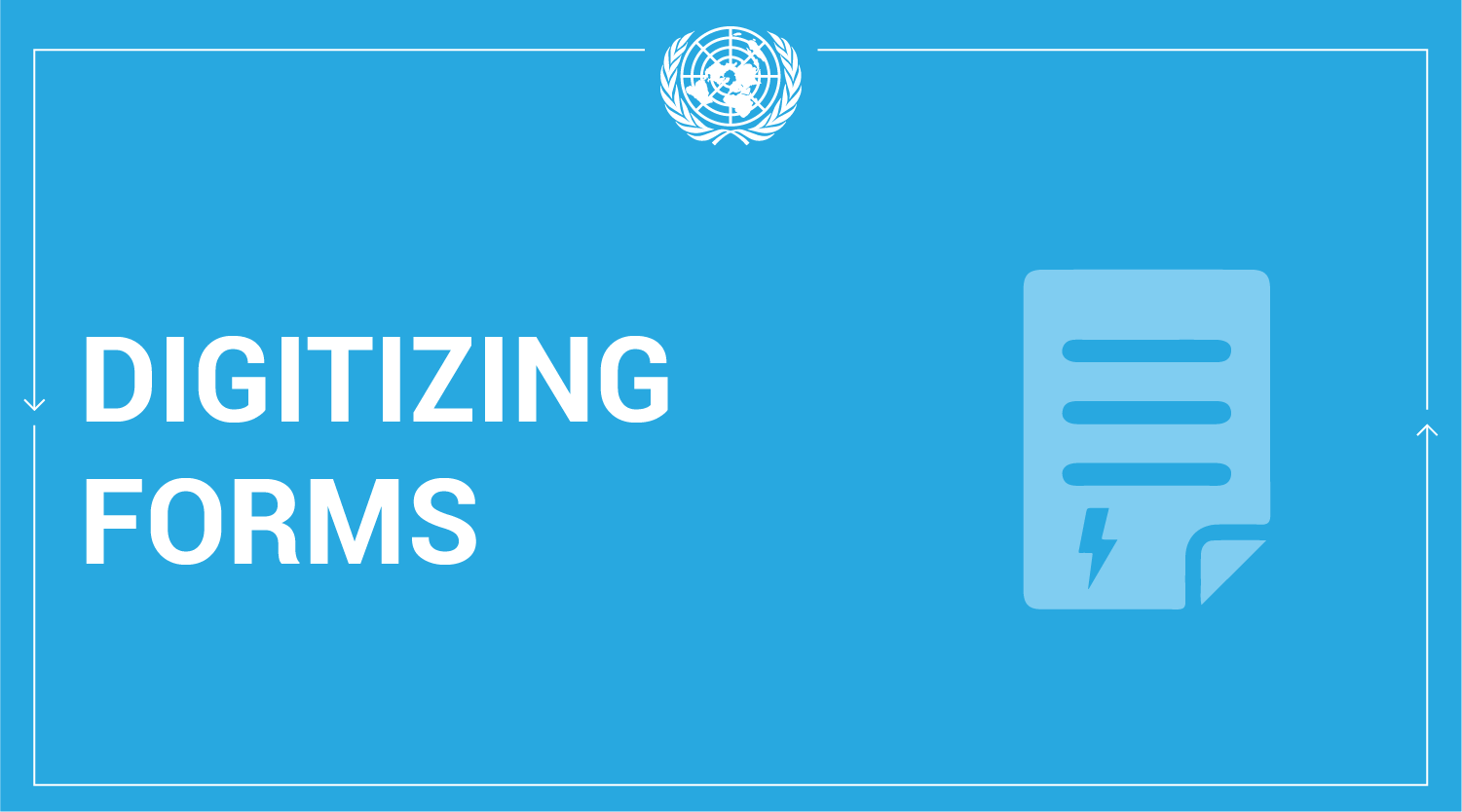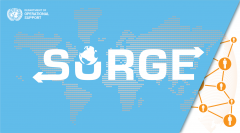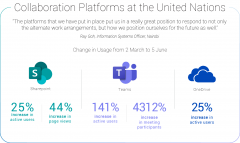The global human resources strategy of 2019-21 set a goal to become “simplified, decentralized, flexible, and field-oriented” in order to drive strategic human resources management and empower managers.
Then COVID-19 exposed an overreliance on physical paperwork and signatures in our human resource management. Adopting electronic signatures and migrating paper-based forms into digital systems will help the United Nations strengthen its ability to manage human resources in an ever-changing world.
In the wider human resources landscape in the United Nations, there are over 150 paper-based forms that need to be signed or filled in. These forms include medical, tax, insurance and travel documents. Additionally, many documents have been developed that were applicable to specific projects, and there is now considerable overlap. This can make it difficult for staff to navigate so many forms and ensure they complete and submit them correctly.
When the COVID-19 pandemic pushed much of the Organization into alternate working arrangements, a cross-functional team representing multiple departments issued interim guidelines to enable staff and managers to proceed with critical processes, overriding or accommodating for the inability to process paper-based forms. Guidelines highlighted what e-signature options could be used by staff, and how processes could be conducted remotely.
While this first step ensured business continuity, it did not address the wider issue of simplifying and modernizing human resources management across the United Nations. Subsequently, a global working group of human resources professionals was brought together with the goal of driving forward the digitization of forms and documents.
The working group successfully inventoried all paper forms and essentially triaged them, suggesting the following actions:
- abolishment or retirement of forms;
- simplification such as abolishing fields within forms or merging multiple forms; and
- integration of forms into existing enterprise systems to fully digitize the process.
“This project is about trying to modernize the way we work and to support business continuity,” stated Chhaya Kapilashrami, Director of the Human Resources Services Division in the Department of Operational Support.
With the recommendations of the working group endorsed by senior management, the group is progressing into implementation to identify costs and timeline for integrating forms into human resource systems. Additionally, they continue reviewing policies that require paper-based forms, which if changed could enable further simplification.
The group will take lessons learned from local solutions to feed into the process. “The electronic signature program, developed in previous years, is now more important than ever during COVID-19", stated Paulin Djomo, Chief of the Regional Service Centre in Entebbe, Uganda.
The new structures put in place through management reform are enabling more changes to make the United Nations more agile, accountable, and transparent. While the pandemic accelerates digitization across the system. “We could not have foreseen this in 2018, but we’ve managed to add the policy dimension, and the digitization, which are key to truly changing the culture as envisioned in United Nations reform”, stated Jens Wandel, Special Advisor to the Secretary-General on Reforms.




